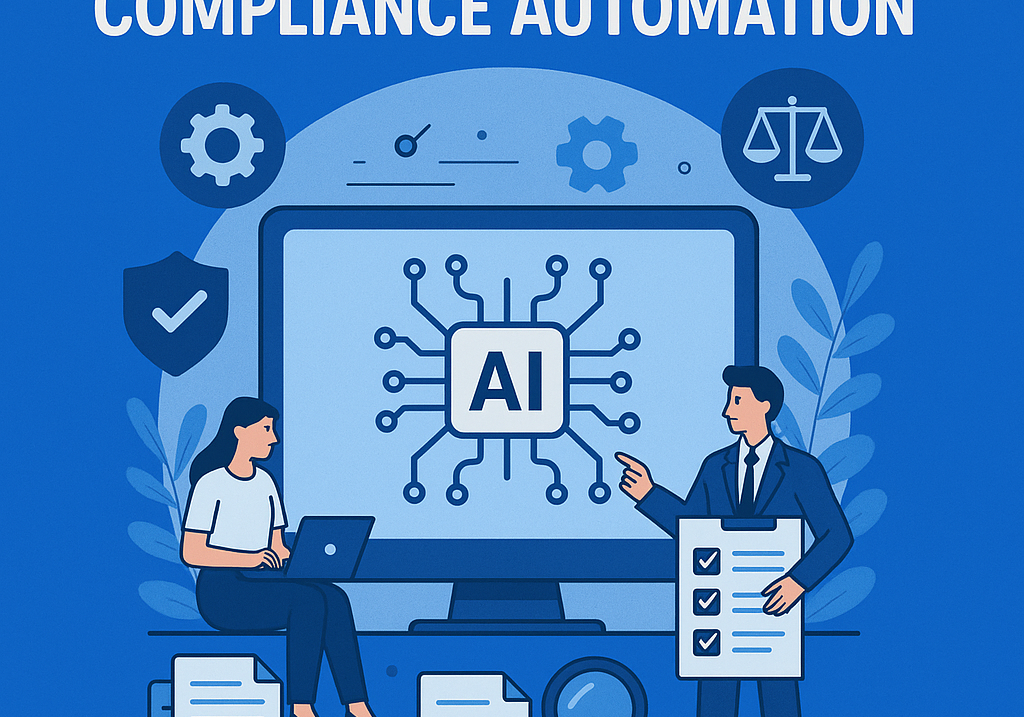How AI Is Transforming Compliance Automation

With the rapid pace of regulations in the modern world, companies are increasingly being pushed to remain compliant with changing laws and regulations. Old compliance management methods, where processes are primarily manual, are time-consuming and error-prone. Here comes AI compliance to transform the sector. Using regulatory AI technology, organizations can automate compliance processes, minimize risk, and improve efficiency overall.
The Role of AI in Compliance Automation
AI-powered compliance automation is reshaping how businesses handle regulatory requirements. Companies are integrating AI into their compliance management systems to ensure accuracy, efficiency, and proactive risk mitigation.
1. Automated Compliance Monitoring
The challenge for organizations is keeping up with changing regulations. AI-driven systems continuously monitor regulatory updates and automatically apply necessary adjustments to compliance policies. This requires continuous manual oversight and ensures that businesses always remain up to date with the latest laws.
2. Enhancing Risk Management
Regulatory AI solutions are designed to identify and assess potential risks before they become major compliance issues. Machine learning algorithms analyze historical data, identify patterns, and predict potential violations. This proactive approach helps businesses mitigate risks and take corrective actions in advance.
3. Compliance Efficiency Through Process Automation
Manual compliance processes can be time-consuming and resource-intensive. AI simplifies these tasks by automating workflows such as document verification, audit reporting, and real-time compliance tracking. This increases operational efficiency by reducing human errors and ensuring higher accuracy in compliance documentation.
Benefits of AI-Powered Compliance Solutions
1. Cost Savings
AI reduces the need for large compliance teams by automating routine tasks. This leads to significant cost savings while improving accuracy and compliance adherence.
2. Improved Decision-Making
With AI-generated insights, businesses can make data-driven decisions regarding compliance policies. Real-time analytics help organizations identify weaknesses in their compliance framework and improve risk assessment.
3. Increased Scalability
Compliance requirements grow with the business’s growth, and so do them. AI-driven compliance automation allows organizations to scale their operations without increasing manual efforts.
Industries Benefiting from AI Compliance Automation
Various industries, including finance, healthcare, and retail, are leveraging AI to enhance their compliance management.
- Banking & Finance: AI helps financial institutions detect fraudulent activities and adhere to strict regulatory guidelines such as GDPR and AML (Anti-Money Laundering) laws.
- Healthcare: AI ensures compliance with HIPAA regulations by securing patient data and automating regulatory reporting.
- Retail & E-commerce: Businesses use AI to manage supply chain compliance, consumer data protection, and tax regulations efficiently.
The Future of AI in Compliance Management
As AI technology continues to evolve, we can expect even more advanced compliance automation solutions. From natural language processing (NLP) for interpreting legal texts to blockchain-based compliance verification, AI is set to revolutionize regulatory management in unprecedented ways.
How Sahl Simplifies Compliance Automation
For businesses looking for automated compliance solutions that simplify regulatory processes, Sahl offers AI-powered compliance management tools. These solutions help organizations streamline vendor compliance, automate policy generation, and enhance security through advanced AI-driven monitoring.

